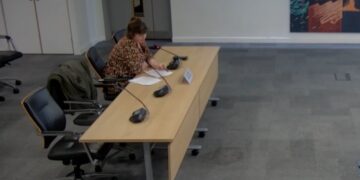A NEW report shows that three in five children in the south east facing hardship are doing so as a result of parents struggling to find work.
A report by the charity Action for Children has revealed that 67,000 children in the region are living in poverty despite despite at least one parent working full-time.
They say it calls into question the government’s analysis that the best way to stop child poverty is by ensuring that parents are working.
The charity is now calling for urgent reform in social security to address the problem.
The charity launched the report to estimate the number of children whose families are experiencing barriers to work.
It looked at government data from between 2017 and 2022, collected by the UK Family Resources Survey.
The report found that of the 481,000 children living in poverty in the south east, nearly 300,000 are trapped in hardship because parents find it difficult to find work or take on extra jobs.
This constitutes about 61%, or three in five.
It also found that 67,000 children are experiencing poverty despite both parents working full time.
A further 98,000 children were in poverty with at least one parent with disabilities, and an extra 30,000 where at least one child in the household had a disability.
An extra 82,000 children were in a household experiencing poverty and housing at least one child under the age of two.
This means that just under 200,000 households with children in poverty faced a barrier to work, 77,000 faced two barriers, and 19,000 faced three or more barriers to work.
A household is considered to be facing poverty if its overall income is less than 60% of the average after costs.
Action for Children’s operational director in the South East, Kate Isham, said: “Our research shows we need to be honest about why so many children in our region are growing up poor and confront the myth that work alone is a passport out of poverty.
“In this election year, this is something all political parties must address. Further research is needed into the financial challenges facing these working families so we can find more targeted and effective solutions.
“This should be part of a wider programme of reform that strengthens the social security system and tackles the barriers to work and opportunity that are keeping families trapped in poverty.”
























